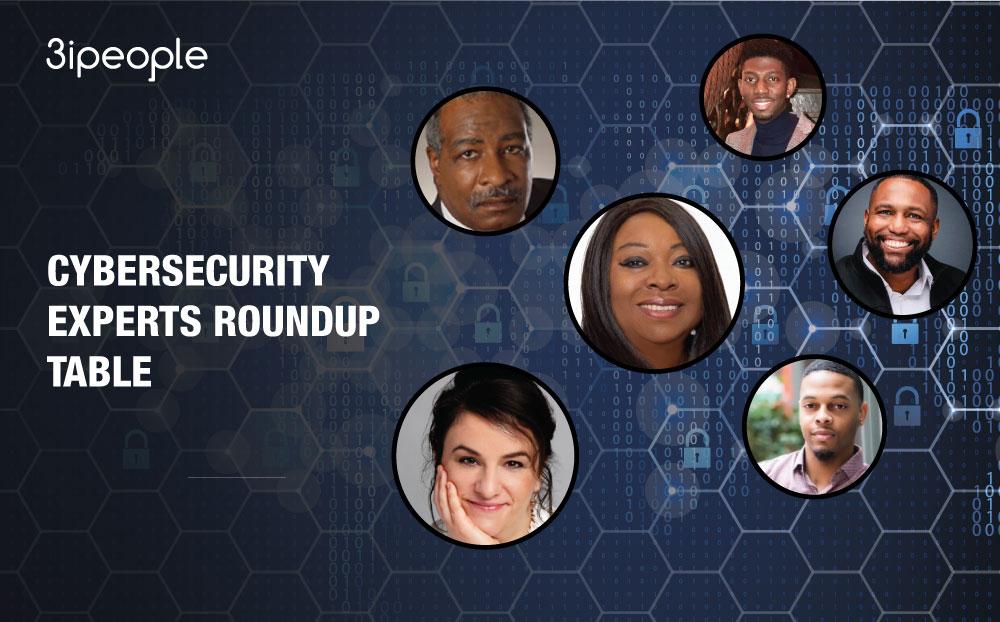Cybersecurity Experts Roundup Table
There are over 14,796 Cyber Security Analysts currently employed in the United States. (Source: Zippia) It is also believed Cybersecurity professionals are more likely to work in public sector than the private firms.
The need of Cybersecurity professionals is in high demand, but at the same time there is a shortage of skills gap when the experience, industry certifications and education are considered. We reached out to different Cybersecurity leaders to get insights on the topic “As a Cybersecurity Expert what would be your advice to level up Cyber Security career to the professionals who are interested in choosing cybersecurity as their career” and derived at many useful tips which can be a vital for your career growth.
Customer Success & Experience Executive | Board Advisor | Cybersecurity | Inspirational Speaker
I would say to have the basic understanding and enthusiasm for the area you want to focus in on. When I interview, I am looking for the base soft skills and aptitude in candidates so that the transferable skills can be quickly and smoothly learnt.
Cyber Security Professional
I would say, choose an element in the cyber security field and do a deep dive into it. Whether it’s Pen testing, Digital Forensics, or Threat Analysis. And to always keep in mind, that there is more than one way to skin a cat, so if you think you’ve found a solution, that may just be one of many to be discovered.
Dr. Vivian Lyon, DIT, MSIT, MScIT, MBA
CIO | Cybersecurity, Cloud, & Technology Strategist | Forbes Technology Council | Author | Mentor | Researcher | Professor
My general advice is to first choose an area of focus, particularly, if you’re new to cybersecurity. You need to decide on an area of cybersecurity you want to focus on. If you’re new to information technology, learn the basics or gain basic skills through technical or community colleges. Many offer classes in security basics and network management. Try to get well-rounded experience in IT to advance in your chosen area of focus. Once you’re in the cybersecurity field, expand your skill set and knowledge by learning other areas of cybersecurity as well as obtaining some certifications. You might decide to attend a university for a formal degree in Cybersecurity before embarking on your journey. I recommend using your professional network, if you’re just getting started in cybersecurity, their experience, knowledge, and insights into available positions will be valuable. These are just a few recommendations. In your spare time, feel free to read my publication about strategies for recruiting and retaining diverse cybersecurity professionals https://scholarworks.waldenu.edu/dissertations/8307/.
Cybersecurity Expert | PCI DSS SME
I would say get familiar with the PCI DSS (Payment Card Industry Data Security Standard). All businesses have some avenue that leads them to having to be compliant to this standard. You have 12 requirements and within those requirements you touch on building and maintaining a secure network and systems and maintaining a vulnerability management program just to name a couple of topics. Not being in compliance could cost your organization a lot of money. So, I would say to any person in the Cyber Security career to at least develop a base level of understanding of PCI DSS compliance.
Cybersecurity Professional
My advice is this: 1. Learn about IT in general. If you are in IT, learn about your area from a day-to-day view. How do you do your job? How do you write code? What are your best practices for server management? Knowing how you are doing your job in a production environment is a great advantage to have when transitioning to cybersecurity, as you will understand the complexities of the impact secure development and configuration have on the day-to-day work of IT. 2. Get a basic certification in Cloud services. Either AWS, Azure, or Google Cloud basic certification will make you aware of what the cloud does, and how businesses use these services. 3. Focus on the Security+ certification. CISSP is the gold standard, but most Cybersecurity jobs require the Security to get in the door. The CISSP is for experienced Cybersecurity professionals, and this should be your long-term goal. Hope this helps!
Cybersecurity Engineer
Learn something new every single day, network with the security community, invest in quality education, setup a lab at home to practice, Don’t quit!
PCI DSS SME | Cybersecurity Expert | Vulnerability Manager
I personally think anyone choosing security has to know that it is a journey and not a destination. You don’t ever stop learning.
Plus, as a professional, you already have a path and i am sure there is cybersecurity that aligns with that path. Look at that, talk to career coaches, read, follow the security news (very important) and you will understand where you want to be in cybersecurity.
Cybersecurity Expert Analyst | QSA/ISA | PCI DSS SME | PCI Compliance consulting
Find a niche in a field you like and is growing and spend your time becoming an expert in it. For me it’s PCI
Senior Cybersecurity Analyst (DFIR | CTI)
It’s simple, become a life learner as any space in technology especially cybersecurity is always changing. As for people interested in the career, focus on the foundations of Cybersecurity and they will succeed.
Cybersecurity Researcher, Cyberpsychologist, TEDx Speaker, Award Winning Entrepreneur
Stay curious in unique areas. Think about how cyber impacts business, while till having a heart and understanding of business. Many cyber professionals just want to secure the world without realizing we must live in said world. Putting security and business together is a big win.
Eric Servin
IT Security Engineer
My advice is to try to be as competitive as possible. Some options are to join the military, get security certs, more school, and self-learn as much as you can.
Cybersecurity Professional | PCI DSS SME | Risk & Vulnerability Management
I would say they will need to figure out what area they are interested in. I would tell them about joining cybrary before trying to investigate boot camps. The things I’ve learned. Frameworks is more important and there is a wealth of knowledge out here on Cybrary than bootcamps and would save companies a lot of money for training and there are labs on there as well.
Thanks for all Cybersecurity Industry Leaders to share their insights and we hope this Experts Roundup table will help the cybersecurity aspirants to achieve their goals.








